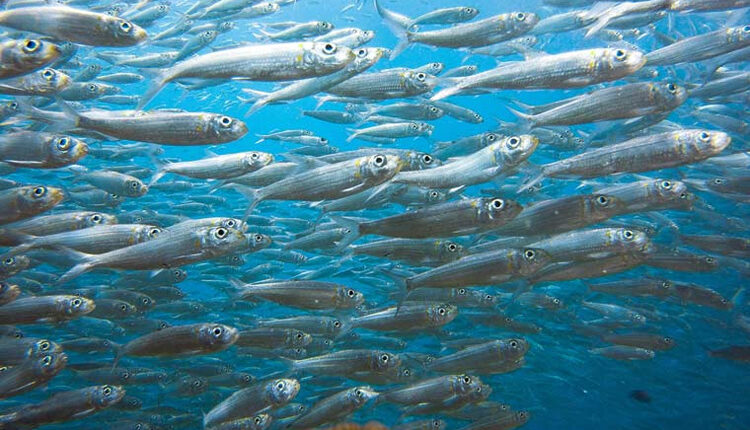Climate change reducing fish weight in oceans, study finds
A recent study conducted by researchers at the University of Tokyo in Japan has revealed that climate change may be causing a reduction in the weight of fish in the western North Pacific Ocean.
The study, published in the journal Fish and Fisheries, found that fish weight in the region dipped in the 2010s due to warmer water limiting food supplies. This reduction in fish weight has significant implications for fisheries and policymakers managing ocean resources under future climate change scenarios.
The researchers attributed the reduction in fish weight to several factors related to climate change. They found that warmer water limited food supplies, leading to more competition for food among fish species. This competition for food, particularly due to greater numbers of Japanese sardines, resulted in a decline in fish weight. The study also highlighted that with higher temperatures, the ocean’s upper layer becomes more stratified, leading to the replacement of larger plankton with smaller, less nutritious species, such as jellyfish. Additionally, climate change can alter the timing and length of phytoplankton blooms, which may no longer align with key periods of the fish life cycle. The migration of fish has also been shown to be affected, impacting fish interaction and competition for resources.
The study investigated 17 fish stocks from 13 species and found that many decreased in weight during the 1980s and the 2010s. The team analyzed long-term data for six fish populations from four species between 1978 and 2018 and medium-term data for 17 fish populations from 13 species from 1995/1997 to 2018. The results showed two periods of reduced fish body weight, first in the 1980s and again in the 2010s. The team attributed the 1980s weight decline to an increase in Japanese sardine, which likely led to greater competition for food within and between fish species. In the 2010s, the effect of climate change warming the ocean appeared to have resulted in more competition for food, as cooler, nutrient-dense water could not easily rise to the surface.
The findings of this study align with broader research indicating that climate change is already having a serious impact on seafood. The study found that the amount of seafood that humans could sustainably harvest from a wide range of species shrank by 4.1 percent from 1930 to 2010, a casualty of human-caused climate change. This decline in sustainable seafood harvest has significant implications for global food supplies and the livelihoods of millions of people who rely on fishing for income.

